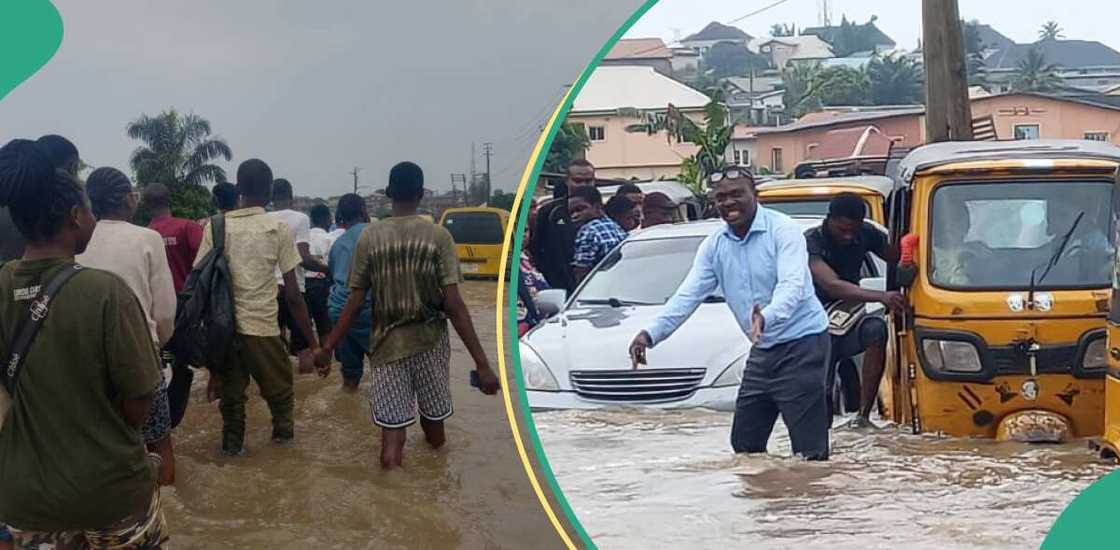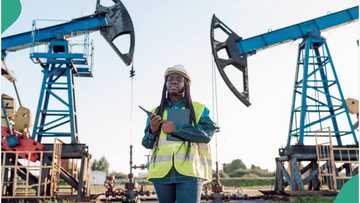“Disaster Management a Collective Effort”, Expert Gives Reason
- The fight against natural disasters has been described as a collective one that involves and concerns everyone
- The Cooperazione Internazionale (COOPI) and Christian Aid gathered stakeholders to deliberate on some of the milestones and challenges in disaster management
- Christian Aid, Nigeria country director, Temitope Fashola, told Legit.ng some intricacies in disaster management and their solutions
Legit.ng journalist Segun Adeyemi has over 9 years of experience covering political events, civil societies, courts, and metro
FCT, Abuja - Nigeria has experienced numerous disasters over the years, including flooding, illegal mining, building collapses, and environmental degradation.
Recently, Lagos suffered a flood that impacted significant areas on the mainland, displacing residents from their homes in locations like Alimosho and Agege.

Source: Twitter
Meanwhile, there have been conversations about pre-forecasting and disseminating pre-advisory to residents prone to natural disasters.
On Wednesday, February 28, stakeholders converged at the Fraser Suites in Abuja for a 1-day National Conference and Dissemination event on the Disaster Risk Reduction and Social Safety (DRaSS) project themed: Collaboration for Disaster Management in Nigeria: Problems and Prospects.
These stakeholders were brought together by the Cooperazione Internazionale (COOPI) and Christian Aid in collaboration with key stakeholders at the local, state, and national levels.
The convergence was staged to showcase project achievements, provide cross-learning opportunities among stakeholders, and highlight areas for future interventions regarding disaster reduction in Nigeria.
Expert speaks on preemptive measures against disaster
Speaking to Legit.ng on the need to initiate proactive measures in disaster management, Mr Temitope Fashola said a lot of work has been put in place by the government's disaster management body to preempt and sensitise people on the imminent danger of natural disasters.
However, he stated that a lot needs to be done to stem this information down to the lowest level with the best and simplest message for people to understand and adhere to this information.
Mr Fashola said:
"To be honest, I think one of the things that is more important is how do we then take that big information at the national level to usable information at the community level."
"And then, how do we also create spaces Where if we're telling people, for instance, to not do certain things, especially working with our urban planning authorities, what can we do in the area of preparedness to ensure that through coordination, we are able to effectively prepare against the disaster.'
"So, I think in terms of information around and the forecasting from the government, they give a lot of information.
"Even these days, they use media, print documents, and send all of that out. But then how do we now use that information they gave to prepare to work with all stakeholders, and in this case, everybody is important?"
In 2022, the government disclosed data showing a surge in flood victims, surpassing 74,000 individuals across 22 states and the capital, Abuja.
According to reports, destructive floods have displaced 73,379 people, resulting in 115 fatalities and 277 injuries. Various government bodies compiled the figures.
Flood: LASG orders relocation of residents of Lekki-Ajah, Meiran, 16 other areas
In another report, residents of Lagos are at risk of devastating floods as heavy rainfalls are envisaged in many parts of the state.
Heavy rainfalls are expected in October 2023 in different parts of Nigeria’s commercial capital.
Legit.ng reports that infrastructure, businesses, and properties will be affected if it happens.
PAY ATTENTION: Unlock the best of Legit.ng on Pinterest! Subscribe now and get your daily inspiration!
Source: Legit.ng





